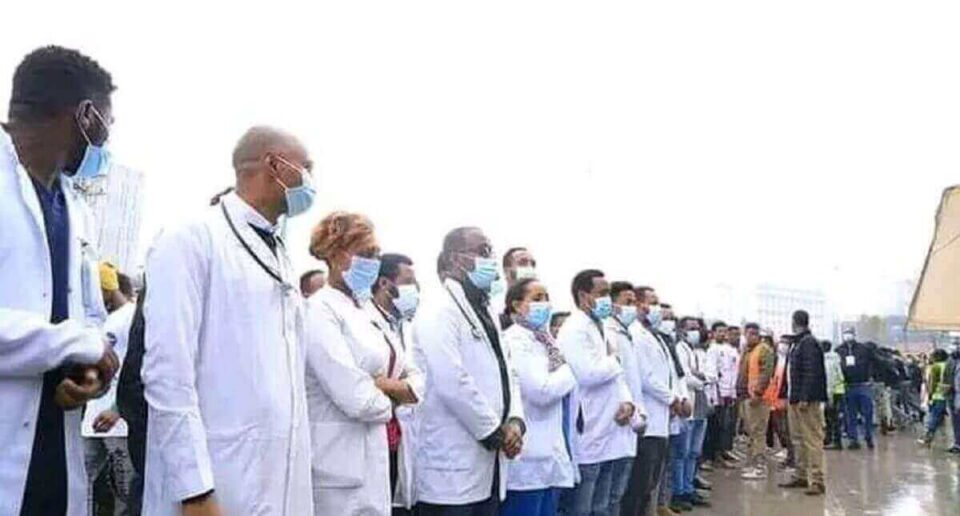ADDIS ABABA, Ethiopia — Amnesty International has called on the Ethiopian government to unconditionally release health workers arrested during a nationwide strike over low wages, which began on May 12.
The rights organization condemned the detentions as a violation of the workers’ rights to peaceful assembly and expression.
The Ethiopian Federal Police announced the arrest of 47 individuals, accusing them of organizing an illegal strike, creating chaos in the health sector, and endangering patients’ lives.
Among those detained is Dr. Mahlet Guuesh, a pathologist who was recently interviewed by the BBC. Amnesty International reported that 20 health workers are being held at the Addis Ababa police headquarters.
Tigere Chagutah, Amnesty’s director for East and Southern Africa, described the detentions as “shameful and deeply troubling.”
He urged the Ethiopian government to cease its crackdown on healthcare workers and to release all those arbitrarily detained for speaking out for their rights.
The strike has significantly disrupted medical services across the country. A doctor at a hospital in Addis Ababa, speaking anonymously due to security concerns, reported that 90% of medical services had been disrupted at his facility. Another health worker stated,
“We have no political goals; we are on strike simply because we cannot survive and live in the current conditions.”
The Ethiopian Ministry of Health declared on May 15 that health worker strikes were prohibited and warned that the government’s patience in resolving the issue had its limits.
The ministry emphasized that the strike was illegal and posed a threat to patient safety.
Ethiopia, with a population of approximately 130 million, faces significant economic challenges. According to the World Bank, a third of the population lives below the poverty line, earning less than $2.15 per day.
Amnesty International highlighted that even specialist doctors in Ethiopia earn as little as $80 per month, underscoring the financial hardships faced by healthcare professionals.
The ongoing strike and the government’s response have raised concerns among international observers about the state of labor rights and freedom of expression in Ethiopia.




